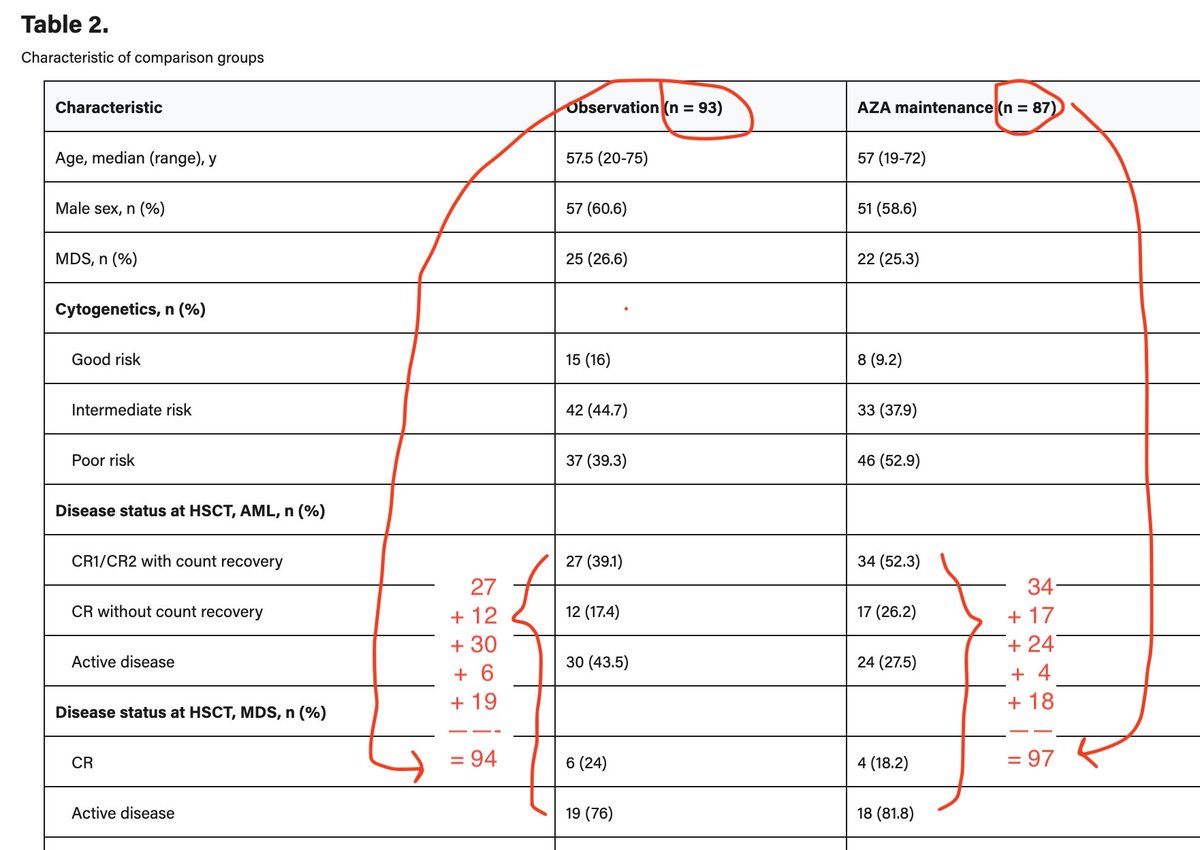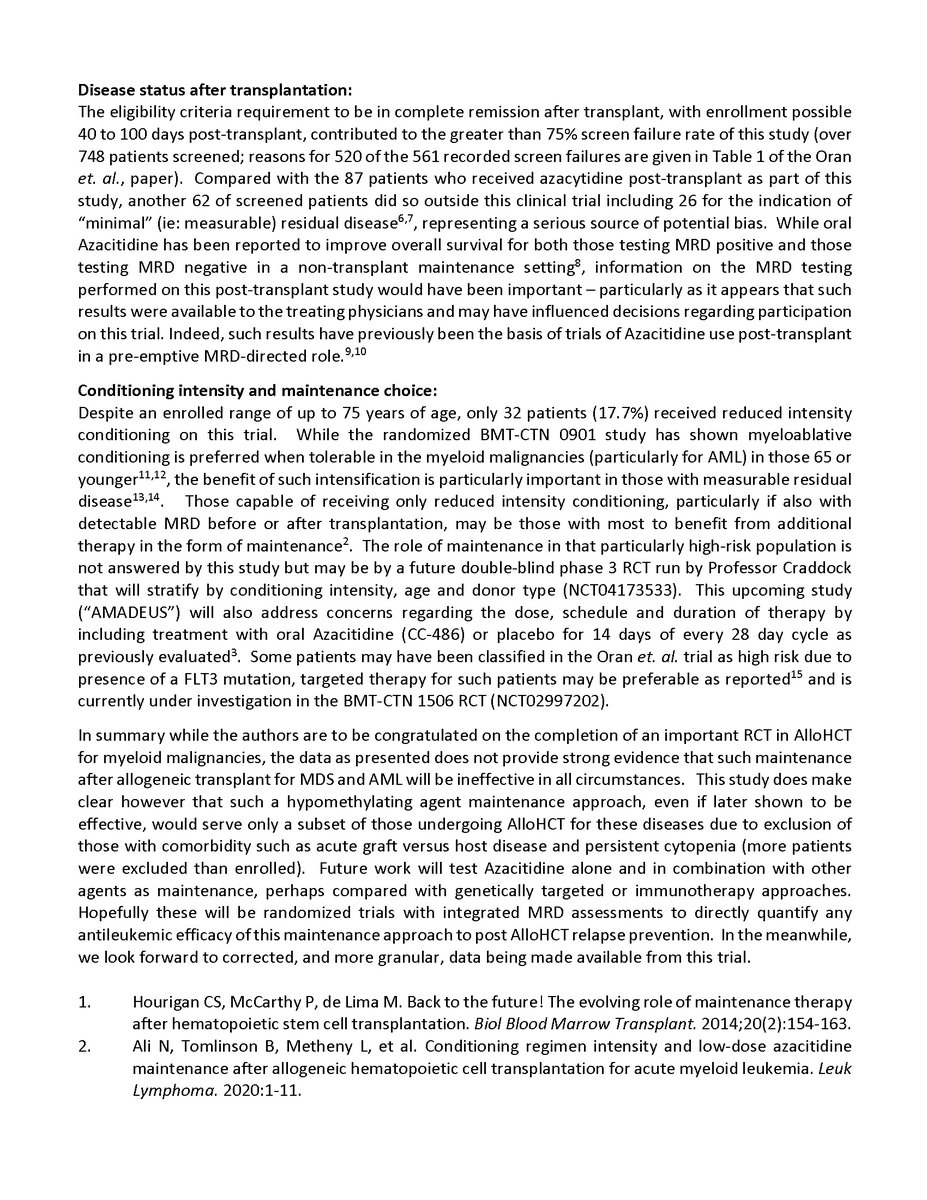My thoughts on "A phase 3 randomized study of 5-azacitidine maintenance vs observation after transplant in high-risk AML and MDS patients" | Blood Advances | American Society of Hematology https://ashpublications.org/bloodadvances/article/4/21/5580/474117/A-phase-3-randomized-study-of-5-azacitidine#.X6w80kHKTJk.twitter
Firstly, I am on record saying that RCTs are absolutely needed in myeloid malignancies and allo-transplant especially. The authors are to be congratulated. Trials are HARD. It looks like this one was particularly rough to get over the finish. Again, they are to be congratulated.
I do have some thoughts though. I have disdain for the insta-pundits in oncology who get thousands of twitter followers by having an instant opinion on everything and anything - so I made sure I carefully read the whole paper a few times first.
This is also the EXACT area I spend *all* my time thinking about - so feel okay commenting.
Five main comments: 1) The population. Less than half of the 181 patients analyzed were AML in CR before transplant (24-30% refractory/relapsed AML, 26% MDS - both important groups that get alloHCT - but not the same risk profiles as AML in CR). Therapy-related also included.
2) MRD. It wasn't just that it was not reported. It *was* done in at least some cases and testing positive influenced some to not participate in the RCT but instead get post-HCT AZA off-study. Obvious source of bias, of those screened almost as many got AZA off study as on!
3) Conditioning: The group with highest risk of relapse is MRD+ pre-HCT who get RIC. In this study >80% got MAC. Subgroups by disease subtype, conditioning and Tx arm aren't broken down by relapse rates -but many of 40% 1yr relapses may have been R/R pre-HCT (ie: persistence)
4) The drug: Aza 32mg/m2 is a funny (low) dose and on average people only got 4 cycles of planned 12. Not likely to be effective for R/R AML. Lots of patients (more than enrolled) excluded b/c of aGVHD and cytopenias - not going to be for everyone even if it worked in subset.
5) The data: Why did I give a range 24-30% refractory/relapsed AML on this study? -because the numbers in the paper don't add up. Some typos, some more complicated (see attached) but I'm asking the authors to not only correct but also make the patient-level spreadsheet available
I've quickly put these comments into a FIRST DRAFT letter to the editor (attached) - if anyone has other thoughts or wants to join me as a co-author please get in touch - again, this is an important question and an important trial - we all want to prevent our patients relapsing..

 Read on Twitter
Read on Twitter





